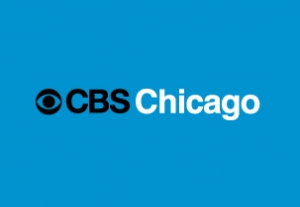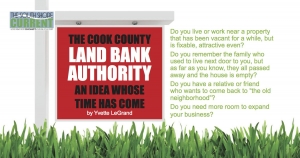 “The thing we wanted to address … is to say, ‘Look, I can’t make someone develop the property, but I can remove the barriers to that decision,'” Gainer said.
“The thing we wanted to address … is to say, ‘Look, I can’t make someone develop the property, but I can remove the barriers to that decision,'” Gainer said. More than 85 percent of the lots are in residential areas. Rob Rose, executive director of the land bank, said the pricing had not yet been finalized but that most of the lots would cost $3,000 to $5,000.
More than 85 percent of the lots are in residential areas. Rob Rose, executive director of the land bank, said the pricing had not yet been finalized but that most of the lots would cost $3,000 to $5,000. There’s a dizzying array of public and philanthropic initiatives aimed at remedying what ails our neighborhoods. One of them has been steadily gaining traction. We’re here to wish it an increasingly prosperous 2017.
There’s a dizzying array of public and philanthropic initiatives aimed at remedying what ails our neighborhoods. One of them has been steadily gaining traction. We’re here to wish it an increasingly prosperous 2017. “The acquisition process for housing is tough. You really want to figure out a way to rehab homes with people in the community and use the most local labor and business as possible because then that keeps the investment in the community and builds it up even further.”
“The acquisition process for housing is tough. You really want to figure out a way to rehab homes with people in the community and use the most local labor and business as possible because then that keeps the investment in the community and builds it up even further.” “This used to be one of the worst houses I’d seen,” said Jason Williams, who rehabbed the Washington Heights bungalow with his wife, Esther, after buying it from the Cook County Land Bank in August for about $17,000. “We had to do everything to it, all the way down to the studs.” The Williams’ foreclosure rehab firm, Ultimate Real Estate Group, put the house on the market in early November, asking $154,900.
“This used to be one of the worst houses I’d seen,” said Jason Williams, who rehabbed the Washington Heights bungalow with his wife, Esther, after buying it from the Cook County Land Bank in August for about $17,000. “We had to do everything to it, all the way down to the studs.” The Williams’ foreclosure rehab firm, Ultimate Real Estate Group, put the house on the market in early November, asking $154,900. The Land Bank Authority can acquire, hold and transfer interest in real property throughout Cook County in order to promote redevelopment and reuse of the vacant, abandoned, and foreclosed properties too often prevalent in our community. “We want to save vacant properties and reduce their potentially blighting influence on neighborhoods” said Rob Rose, Executive Director of The Cook County Land Bank Authority. The Land Bank Authority supports efforts to stabilize neighborhoods and stimulate new development in line with the goals and priorities of community stakeholders and government partners. It can wipe out the liens and encumbrances that can make redevelopment and reuse of festering buildings here-to-fore impossible by neighbors and other local stakeholders.
The Land Bank Authority can acquire, hold and transfer interest in real property throughout Cook County in order to promote redevelopment and reuse of the vacant, abandoned, and foreclosed properties too often prevalent in our community. “We want to save vacant properties and reduce their potentially blighting influence on neighborhoods” said Rob Rose, Executive Director of The Cook County Land Bank Authority. The Land Bank Authority supports efforts to stabilize neighborhoods and stimulate new development in line with the goals and priorities of community stakeholders and government partners. It can wipe out the liens and encumbrances that can make redevelopment and reuse of festering buildings here-to-fore impossible by neighbors and other local stakeholders.